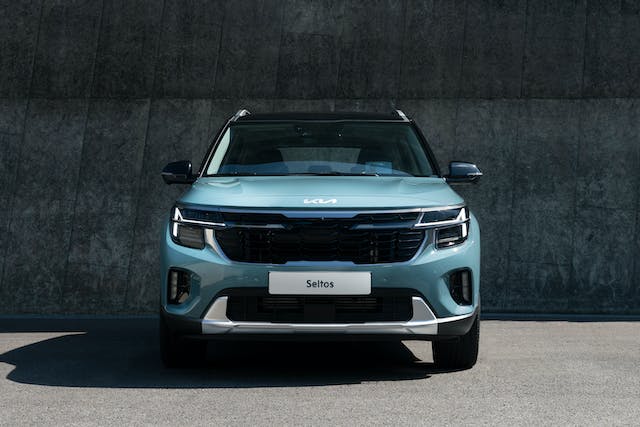

Ultimate Guide For Buying A New Electric Vehicle
Electric cars are becoming more widespread and there are many models available.
Which Model is Right for Me?
There are a number of different models of electric vehicles on the market, each with its own set of pros and cons. The best way to choose a model is by taking into account your needs and lifestyle. Are you looking for an urban commuter car? A family vehicle? Or something else entirely?
To help decide which electric car is right for your needs, we’ve created this comprehensive guide that breaks down all the different types:
- Sedan/Coupe – These are great if you want something smaller and more compact than an SUV or larger sedan. They’re great if you don’t need as much space but still want some room in backseat area for passengers or cargo (if applicable). This category includes popular choices like the Nissan Leaf and Tesla Model 3. Pros include lower price points compared to other classes like SUVs; Cons include limited cargo space due mostly due lack headroom height restrictions imposed by smaller frames than SUVs
Do I want a plug-in hybrid or all-electric car?
If you’re looking to go green, there are two main types of electric vehicle: plug-in hybrids and all-electric cars. A plug-in hybrid has a gasoline engine that can be used to power the car when needed, but it also has a battery pack that allows it to run solely on electricity for short distances (usually around 30 miles).
All-electric cars are powered entirely by electricity and must be recharged at night or while stopped at a charging station during the day. Plug-ins may cost more than regular gas-powered vehicles up front due to their extra features, but they have lower operating costs since they don’t require any gas money!
What size of vehicle do I need?
The first step in buying an electric vehicle is to consider the number of people who will be riding in the car. If you have a large family or are planning on having kids, then it’s important that you get a vehicle that can accommodate them all. The same goes for pets–if you have dogs or cats, there should be enough room for them to sit comfortably in the backseat.
The next thing to think about is how much cargo space will be needed for any items being transported. Many EVs come with cargo racks on top that allow owners to carry items such as luggage bags and small appliances like strollers or bikes without having to worry about them getting damaged during transport (though these are usually sold separately). This feature can help save money because instead of buying separate storage devices like trailers or utility boxes which would cost around $1,000 per item (and may require maintenance), this allows users more flexibility when deciding how they want their vehicles configured so long as they don’t exceed weight limits set forth by manufacturers like Nissan Motor Co Ltd., Toyota Motor Corp., General Motors Company etc…
How long does a battery last?
- How long does a battery last?
Batteries can last for up to 15 years or more, but they do have a limited lifespan. Most batteries will need to be replaced every few years as they age and lose their capacity to hold charge. If you’re looking at buying an electric vehicle (EV), it’s important to consider how much this will cost you upfront and in the long run–and what happens when your battery dies out.*
What are some of the benefits of an electric car over a gas-powered one?
There are so many benefits to owning an electric vehicle, it’s hard to know where to begin.
- No gas or oil changes
- No smog checks
- Engine noise is reduced (or nonexistent)
- Exhaust fumes are eliminated. The only thing coming out of your tailpipe is water vapor! This means that you won’t need to visit the mechanics as often either; they won’t have as much work on their hands fixing up exhaust systems like they do with traditional cars. And if you do decide that your car needs some maintenance work done, it’ll cost less because there aren’t any complicated parts inside the engine compartment–just batteries and motors! All told, this makes for less money spent on repairs over time than if you were driving around in an old-fashioned gasoline-powered vehicle with all its noisy moving parts constantly breaking down under stress from constant use over long periods of time (and then being repaired by mechanics).
Are there any other issues to consider with an electric car?
There are a few other considerations to take into account when you’re comparing electric vehicles.
- Electric cars are more expensive than gas-powered cars. The upfront cost of an electric vehicle can be up to $10,000 more than that of a comparable gas-powered car. This is because many EVs have expensive batteries that need replacing every 10 years or so, which means the overall cost will be higher over time (except if you lease your battery). However, there are tax credits available for new purchases made through December 31st, 2019 (up to $7,500) and some states offer additional incentives as well.*
- Electric vehicles have lower ranges than their gasoline counterparts.* For example: The 2019 Nissan Leaf has an EPA range rating of 151 miles per charge; meanwhile, its counterpart–the Nissan Versa–has an EPA range rating of 382 miles per day.* So while both vehicles can hold five passengers comfortably enough for freeway driving purposes (and even longer distances if needed), the difference between these two cars’ capabilities becomes apparent when considering long road trips.* You’ll want something larger like the Tesla Model S 75D instead if those types of trips would be part of your daily routine!
How much money can I save with an electric car?
The average person spends about $1,200 per year on gas for their car. When you drive an electric vehicle, you don’t have to worry about any of that money going toward fuel costs. That’s because EVs are more efficient than their traditional counterparts–which means they use less electricity (and therefore less power) to travel the same distance.
As a result, there are many other cost-saving benefits associated with driving an EV:
- Maintenance is usually cheaper since there are fewer moving parts in an electric vehicle and they require little maintenance compared with gas-powered cars;
- Insurance can also be cheaper because some insurers offer discounts for drivers who own an EV;
Electric vehicles are becoming more widespread and there are many models available.
Electric vehicles are becoming more widespread and there are many models available. There are a lot of different factors to consider when buying an EV, but one thing’s for sure: you can save money with an EV.
Conclusion
Now that you have the basics of electric cars, it’s time to decide which one is right for you. There are many options available and each one has its own benefits. You should consider how much money you want to spend on fuel costs and maintenance before making your final decision on which model will work best for your lifestyle.
Related posts


Affordable Car Insurance Tips: Maximize Savings with Expert Advice

Essential Tips for Buying a New or Used Car: What Every Buyer Needs to Know







